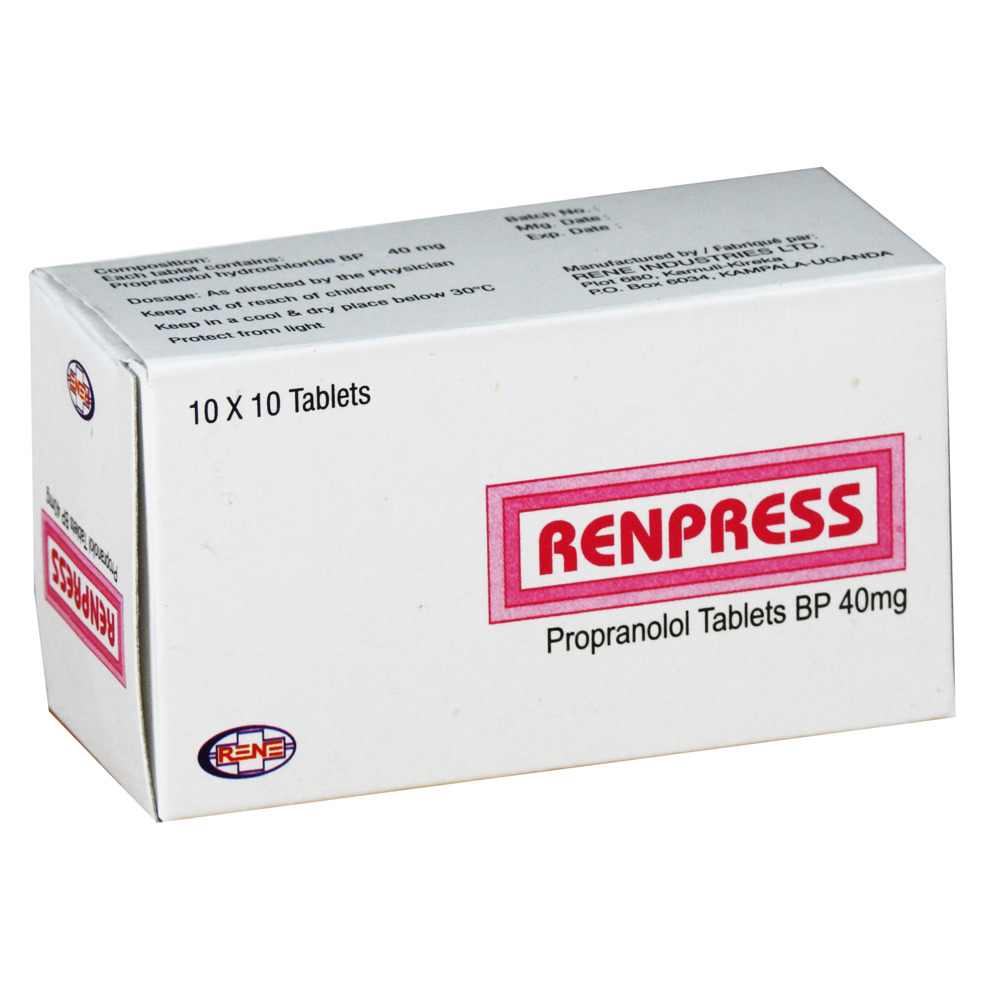Propranolol is a beta-adrenergic blocking agent that is used for treating high blood pressure, heart pain (angina), abnormal rhythms of the heart, and some neurologic conditions. It works by relaxing blood vessels and slowing heart rate to improve blood flow and decrease blood pressure.
Presentation
Blister Pack of 10X 10 Tablets
Indications:
Treat high blood pressure, an enlarged heart muscle or tremors, treat angina pectoris (pain in the chest caused by blockages in the arteries leading to the heart) or high blood pressure caused by a tumour near a kidney (phaeochromocytoma), prevent additional heart attacks, control irregular or fast heart beats, control fast heart rate and other symptoms caused by an overactive thyroid gland, reduce migraine attacks, prevent stomach bleeding in patients with high blood pressure in their liver or swollen blood vessels in their gullet.
Pharmacological class
Antihypertensive
Pharmacological properties
Lowers high blood pressure
Mechanism of action
Propranolol is a competitive antagonist of beta-1-adrenergic receptors in the heart. It competes with sympathomimetic neurotransmitters for binding to receptors, which inhibits sympathetic stimulation of the heart. It interferes with the binding to the receptor of epinephrine and other stress hormones, and weakens the effects of stress hormones.
Side effects
Slow heart rate and low blood pressure (Reynaud’s syndrome )causing dizziness, light-headedness, fainting or blurred vision, allergic reaction such as (itching, difficulty breathing or swelling of the face, lips, throat or tongue),
Contraindications
Propranolol may be contraindicated in people with:
Reversible airways diseases, particularly asthma or chronic obstructive pulmonary disease (COPD), slow heart rate (bradycardia) (<60 beats/minute), sick sinus syndrome, atrioventricular block (second- or third-degree), shock, severe low blood pressure
Drug Interactions:
Some products that may interact with this drug include: alpha blockers (e.g., prazosin), aluminum hydroxide, anticholinergics (e.g., atropine, scopolamine), chlorpromazine, and drugs affecting liver enzymes that remove propranolol from your body (such as cimetidine, St. John’s wort, certain



